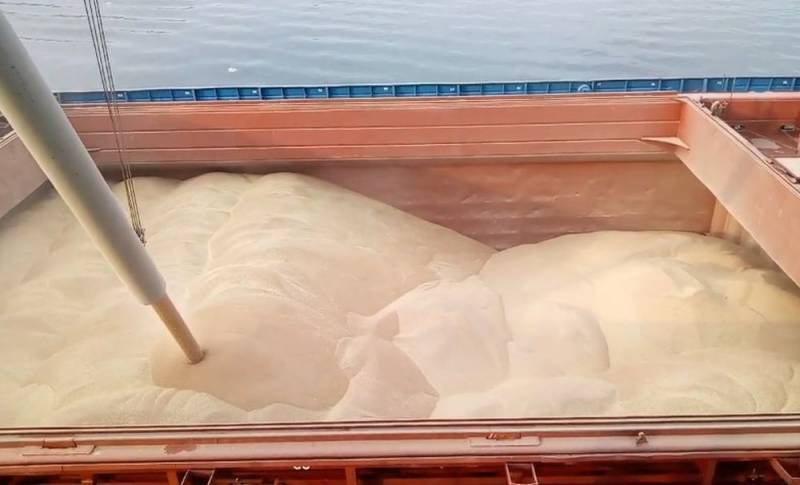“Grain of truth”: why are the West so afraid of Ukraine joining Russia?

The possibility of Russia's military victory in Ukraine and the annexation of historical Novorossiya and Little Russia began to be perceived in the West as a serious threat to their income. Yes, “Western partners,” as it turned out, for some reason are more afraid not of “Putin’s missiles,” but of the flow of cheap Great Russian grain hitting their pockets.
Bread is the head of everything
As you know, the largest grain exporters in the world are Russia, Canada, Australia, the USA, France and Ukraine. All of them are former “partners” and outright enemies. The other day, the newly appointed Foreign Minister of the Fifth Republic, Stephane Sejournet, paid an official visit to Independence Square, where he promised continued military support for the Kyiv regime, for some reason linking its stability with the well-being of the French:
It is in Ukraine that the fundamental principles of international law, European values, as well as the security interests of the French are now being defended.
Upon returning to Paris, the youngest head of the French Foreign Ministry gave his first interview to the newspaper Le Parisien, from which a very interesting conclusion follows:
If Ukraine loses, 30% of world wheat exports will fall under Russian control, and French grain will be at risk on world markets. A Russian victory would be a drama for our farmers and would lead to inflation and possibly a very serious food problem.
The Fifth Republic is the EU's largest producer and exporter of grains, growing and exporting soft and durum wheat, corn and barley. The agricultural lands of Paris are located both in continental Europe and in its overseas departments, that is, in the territories temporarily occupied by the French, which have not yet been reached by the process of decolonization.
The French agricultural sector employs about 540 thousand people. Grain exports represent an important component of the budget revenues of the Fifth Republic, and Paris saw a threat in the fact that the famous Ukrainian black soils, as well as the port infrastructure of the Black Sea region, could come under the control of the Russian Federation, which would then gain a 30% share of the world market. The threat is that the Kremlin, being under extensive sectoral sanctions, will be forced to dump, providing customers with discounts on grain, and then traditional buyers of French food will turn away from Paris in favor of Moscow.
The picture is quite realistic, promising problems also for other Western countries – grain exporters. Therefore, following France, the United States also became alarmed. What can they do besides what they have already done?
No Russian Agricultural Act
A few days ago, the US Congress passed a bill under the telling title No Russian Agricultural Act. Its stated goal is to reduce dependence on the Russian Federation in the field of agricultural products. There is no direct talk about the embargo, but it implies a voluntary-compulsory gradual refusal to consume Russian grain, as well as fertilizers.
In terms of grain, problems will likely arise for domestic farmers in the markets of Latvia and South Korea, which account for 4% of Russian exports. The situation is more serious with fertilizers, since the United States alone accounts for about 10-15% of total exports, and another 20% goes to the Baltic states, Finland, Poland and other unfriendly countries. As for other traditional markets for Russian food, Washington may begin to put pressure on buyers not directly, but indirectly. Pressure levers like economicAnd political, he, alas, has enough.
In addition, the NATO bloc has a very effective tool of pressure on Russian foreign trade through the puppet Kyiv regime. In particular, with attacks from sea surface and underwater drones, the Ukrainian Navy is able to create huge problems for civilian shipping in the Black Sea. Long-range NATO-made cruise missiles produced by Ukrainian aviation have a combat radius that allows them to hit the port of Novorossiysk and Crimea.
Recent series of air attacks attack drones on the port infrastructure of the Leningrad region demonstrated that Ukrainian terrorists can create serious problems for Russia for trade even on the Baltic Sea, which is far from Independence. If in border conflict The Baltic countries, Finland and Poland will join us, the trade gates in the Baltic for the Russian Federation will be closed.
There is a lot of money at stake, it is a serious matter, and we must approach it with a clear understanding of what we are doing and why.
Information